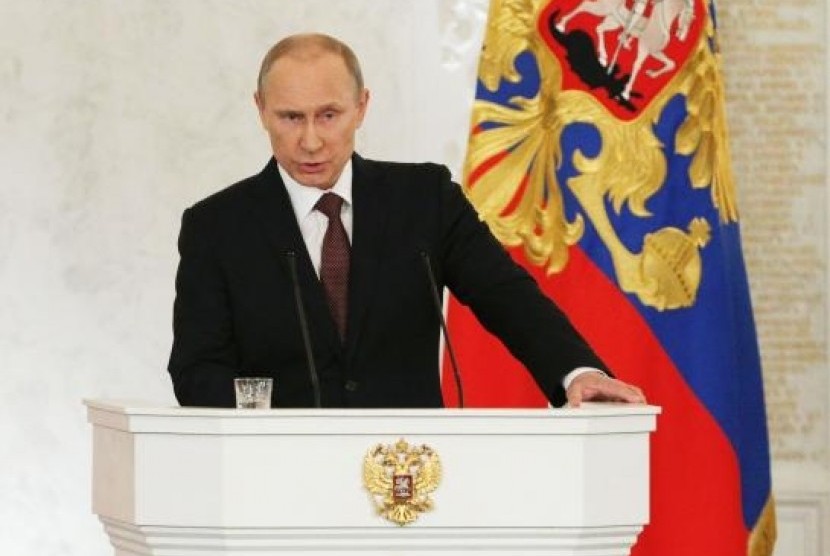REPUBLIKA.CO.ID, MOSCOW - Russian President Vladimir Putin, defying Ukrainian protests and Western sanctions, told parliament on Tuesday that Russia would move forward with procedures to annex Ukraine's Crimean region.
Putin signed an order "to approve the draft treaty between the Russian Federation and the Republic of Crimea on adopting the Republic of Crimea into the Russian Federation". The order indicated the president would sign the treaty with Crimea's Russian-installed leader, who is in Moscow to request incorporation into Russia, but it gave no date.
The move followed a disputed referendum in Crimea on Sunday, staged under Russian military occupation, in which a Soviet-style 97 percent of voters were declared to have voted to return to Russian rule, after 60 years as part of Ukraine.
By pressing ahead with steps to dismember Ukraine against its will, Putin raised the stakes in the most serious East-West crisis since the end of the Cold War. But Ukraine's interim prime minister, Arseniy Yatseniuk, sought to reassure Moscow on two key areas of concern, saying in a televised address delivered in Russian that Kiev was not seeking to join NATO, the US-led military alliance, and would act to disarm Ukrainian nationalist militias.
On Monday, the United States and the European Union imposed personal sanctions on a handful of officials from Russia and Ukraine accused of involvement in Moscow's military seizure of the Black Sea peninsula, most of whose 2 million residents are ethnic Russians.
Russian politicians dismissed the sanctions as insignificant and a badge of honor. The State Duma, or lower house, adopted a statement urging Washington and Brussels to extend the visa ban and asset freeze to all its members.
Leonid Slutsky, one of the lawmakers on the sanctions list, hailed Crimea's decision as historic. "Today we see justice and truth reborn," he said.
Japan joined the mild Western sanctions on Tuesday, announcing the suspension of talks with Russia on investment promotion and visa liberalization.
Putin was to address a special joint session of the Russian parliament on the Crimea issue on Tuesday.
Russian forces took control of Crimea in late February following the toppling of Ukrainian president Viktor Yanukovich after deadly clashes between riot police and protesters trying to overturn his decision to spurn a trade and cooperation deal with the EU and seek closer ties with Russia.


